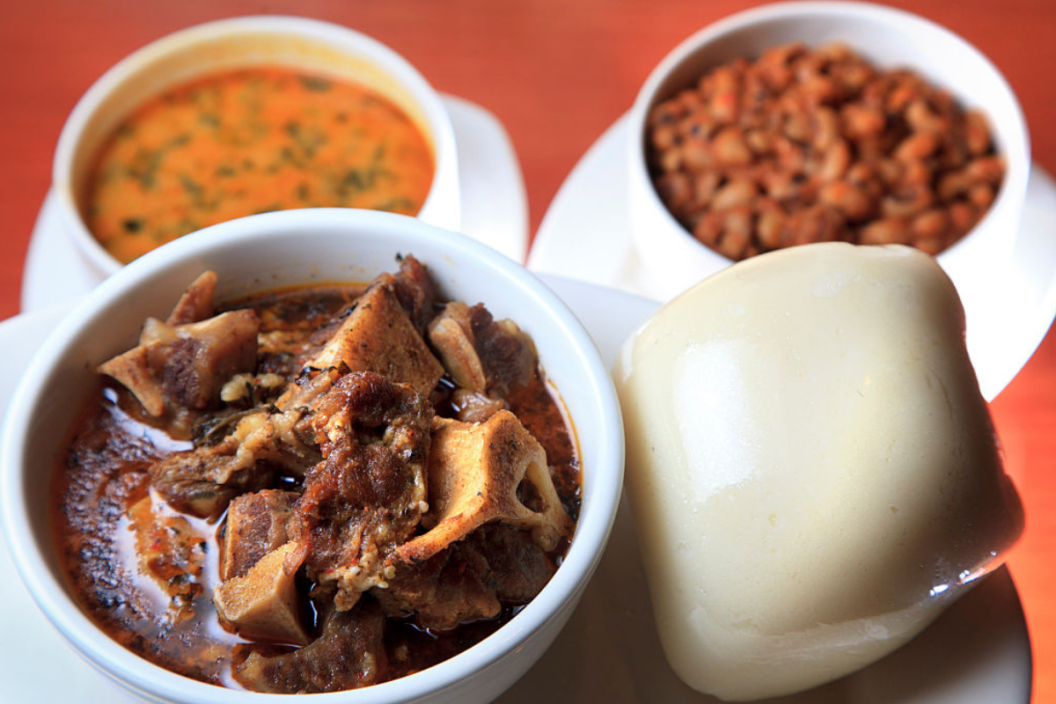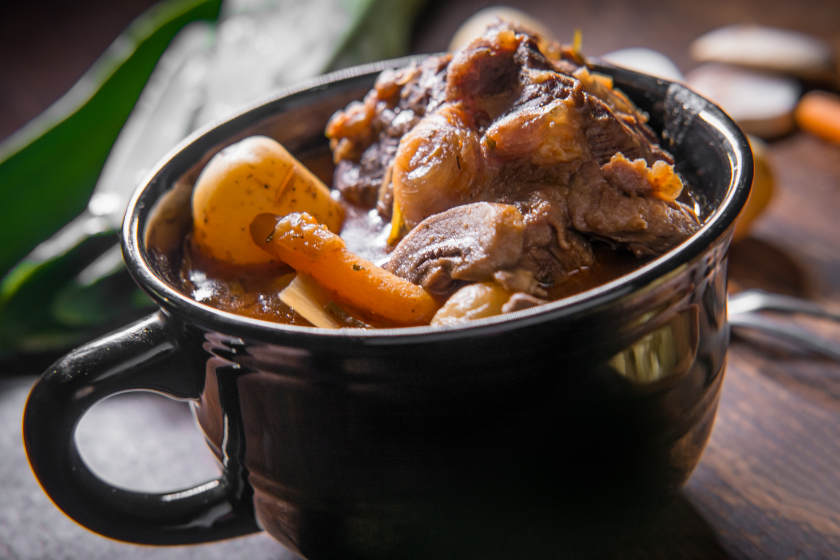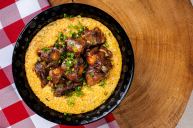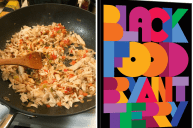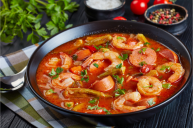These days, the power of food to unify everyone is still a shining aspect of society. However, when it comes to certain dishes that have deep significance in other cultures, there are still those who are highly concerned about some who are discovering these dishes for the first time. Their feeling is that newer audiences finding these dishes will dive more into appropriation rather than appreciation, leaving those who grew up loving those dishes and the traditions attached being priced out of enjoying them. One of those dishes now becoming the next buzzworthy item on elite restaurant menus and social media lists? Oxtail.
Growing up in a Jamaican household in Queens, New York, I gained a love for the savory and hearty dish from an early age. It was and still is a regular thing to compare & contrast how relatives cooked their oxtail with what we'd get from local eateries around the five boroughs and other cities. This also led to bonding over oxtail cooked by family and friends with roots in the South, as well as those who hailed from Nigeria and Ghana. Oxtail's resurgent culinary visibility by more elite bistros and chefs has led to concerns as its traditionally lower price point increased sharply in the last few years.
Have you ever tried oxtail? pic.twitter.com/umda80e17j
— Insider Food (@insiderfood) December 2, 2021
A video article by Insider posted to Twitter last fall became one of the platform's more discussed posts, as many from Black American, African & Caribbean backgrounds jokingly disparaged oxtail in the post's mentions. Their reasoning? They feared that another one of their dishes would be co-opted and the traditions and recipes they'd grown up with and loved would be watered down in addition to the price hike being permanent. One phrase now a part of the cultural lexicon and adorning caps and t-shirts is "Make Oxtail Cheap Again", paraphrasing the campaign slogan of former President Donald Trump. I recently spoke with two chefs and a food historian about their perspectives on oxtail and this phenomenon of it being "discovered" by another audience at large.
How to Cook Oxtail Starts in the Home
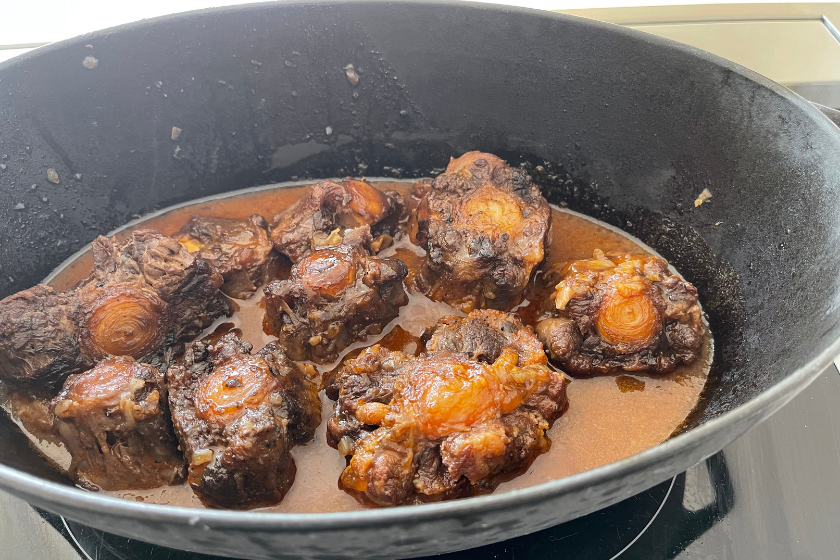
For veteran chef and business owner James Q. Frazier from Spring Valley, New York, it starts in the home. "My personal culture connection with oxtail comes on two different sides of the family," he says, "Because on my dad's side it came from South Carolina where the oxtail they made was more like a stew. On the other side, we cook more of the Caribbean style oxtail which includes browning sauces, scotch bonnet peppers, green onions (scallions), thyme, tomatoes diced, and ginger, and pimento (allspice), onions and green peppers."
Priscilla Payne, an associate lab manager with the New York City Department of Health who enjoys cooking her Low Country family recipes, speaks about her love of oxtail born the same way growing up in the Bronx.
"Oxtail has always been something that we eat in my family, and I know Caribbean folks do it differently. For African-Americans in the south, it was more of a tomato-based stew. We would put a bag of mixed veggies in, the one that would have string beans and corn. We'd get a tomato-based soup or if you wanted to be fancy, we'd use diced tomatoes. Then we'd braise the oxtail on either side on medium-low heat for about five minutes then finish it off in the stew."
Low & Slow
For food writer and historian Debra Freeman, the Black cultural affinity for oxtail is obvious in its roots. "It all follows the low & slow tradition, where you're going to put something on the fire and season it with whatever you have on hand and let that bad boy sit while you're working.", she said. "I would consider it in the Southern tradition like collard greens, like chitlins - not necessarily the best cut, but made into something not only edible and delicious as well. And that comes from the West African tradition of oxtail stew, the Nigerian influence that carried over to when the enslaved were first cooking oxtail."
The embracing of oxtail by a wider audience has caused an increase in price along with other meats overall that have many concerned. "Nowadays oxtails are selling for at least $8 to $13 a pound when it used to be between $2 to $4 per pound for years. This is like a 300% increase," says Frazier when commenting on the current price hike that regular consumers and worried restauranteurs face. "It's being exploited," commented Ms. Freeman. "It's going the way of pigs' feet when it became trendy, like a few years ago when pig's feet became trotters, which I still find hysterical. Call it what it is!" she laughs. "There's a lot of people who consider Southern food equals white, soul food equals Black. To me, that's a whole other conversation even though to me, there is no difference."
The Columbusing of Oxtail
Another bone of contention is the attitude of "Columbusing" when it comes to oxtail from some food outlets and personages. "My thing is, it's the audacity. When I first tried sushi as a 12-year old kid, I recognized the people serving me sushi were Asian. I understood that it was new to me, but it wasn't new to people who've been cooking like this. So, I think grown adults, when it comes to oxtail these days should have the attitude of "it's new to me, but to Black people, this ain't new," Ms. Payne said.
There is still room for the conversation to continue when it comes to oxtail and other dishes held dear by communities of the Black diaspora - so long as those traditions are respected and celebrated properly by communities outside of it. "I feel it's because they try to duplicate but not authenticate," Frazier emphasizes. "I feel until you take time out to pay respect to the Southern and Caribbean roots that have perfected the recipe, you will not "sell-off" as most Caribbean dishes do." Ms. Freeman's take underscores that point. "Food should be enjoyed by anyone. I do think it's important to note who created it, not erasing the heritage, and the ingenuity of those who created it."
READ: Dooky Chase's "Changed The Course Of America Over a Bowl of Gumbo"
